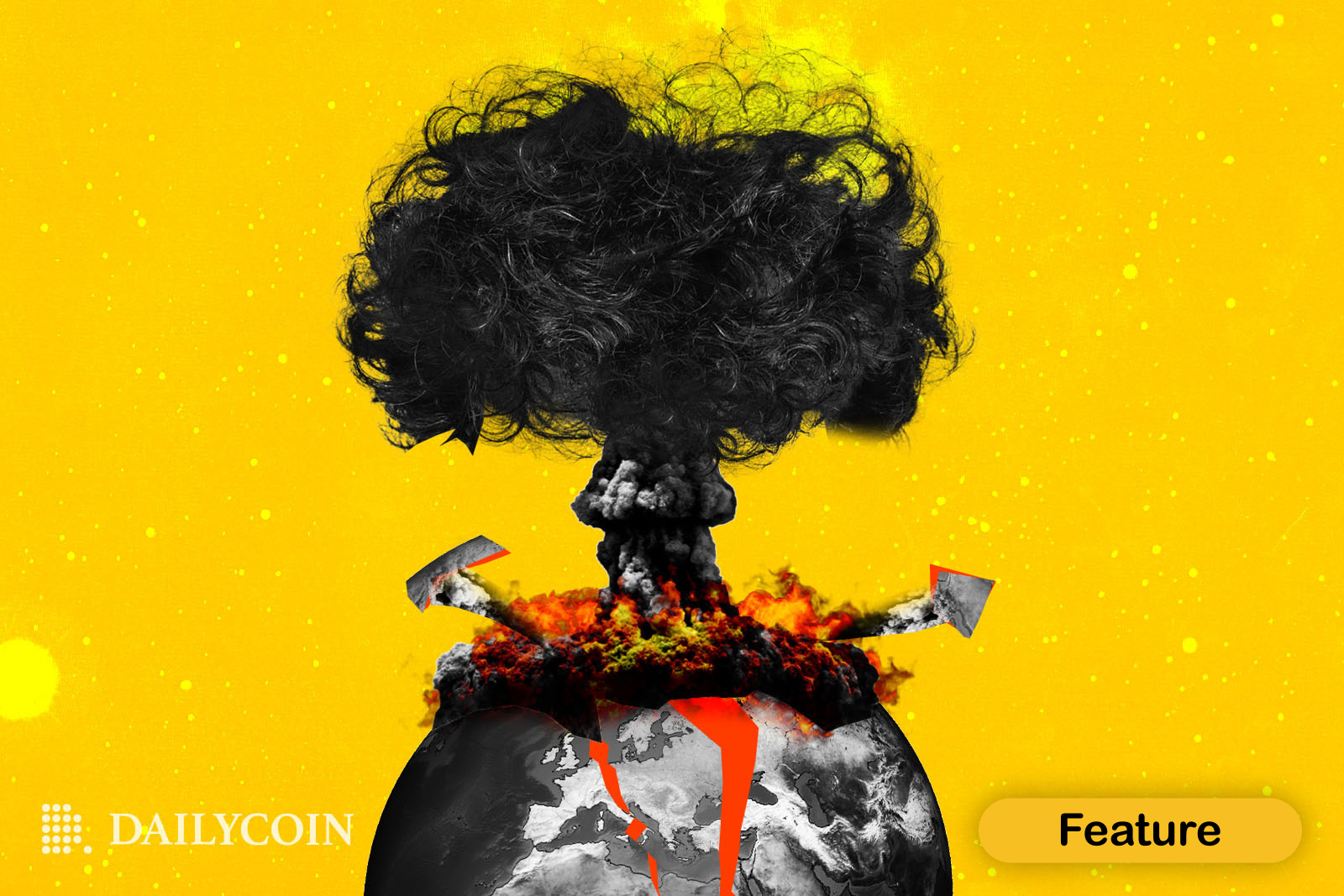
- Crypto exchange FTX’s meltdown is the latest and most high-profile case in crypto’s checkered history;
- All tokens have taken a major hit, and it is not clear if FTX customers will recoup their deposits;
- Prominent crypto figures worry that the collapse will bring more scrutiny to the market, although many are keen to highlight that “FTX is not crypto.”
Over the past week, Sam Bankman-Fried’s $32 billion FTX empire quickly unraveled before a stunned online audience. From the report alleging that FTX was propping up sister hedge fund Alameda with customer deposits, to Binance’s bailout offer which was then retracted, all the way to the inevitable bankruptcy announcement, it was like watching a slow motion car crash — but one which left crypto investors empty-handed and severely eroded crypto’s hard-earned trust.
The situation is still developing, although at this point it seems clear that Bankman-Fried will be in serious legal trouble, with regulators around the world investigating the collapse.
But however this saga will end, one thing is certain. The demise of FTX, and the repercussions it will have on retail and institutional investors, is likely to inflict the kind of lasting damage to the crypto industry that the collapses of Luna, Three Arrows Capital, and many others did not manage – one that the industry might never recover from.
“FTX is Not Crypto”
As crypto experts pick through the rubble to try and build a coherent picture of what led to the collapse, the main theme emerges – FTX, and centralized exchanges in general, are not considered to be “crypto.” FTX was really more like a stockbroker dressed up as a crypto exchange.
Sponsored
What crypto insiders would refer to as “real” crypto, such as DeFi applications like decentralized exchanges Sushi and PancakeSwap, requires holders to operate digital wallets like MetaMask, understand gas fees, and operate knowing that there is no “customer support” should things go wrong.
The technical barrier to the adoption of “real” crypto is quite high, which is why most retail crypto investors prefer to deal with a centralized exchange like FTX that takes custody of their tokens.
Sponsored
And herein lies the problem.
“In many jurisdictions, centralized exchanges are not required to have audits to ensure customer deposits are safeguarded. Even worse, some allow exchanges to lend customer deposits, similar to banks, but without adequate risk management in place. If you couple that with leverage using illiquid assets as collateral, then you are asking for trouble,” said Matthew Niemerg, president at Aleph Zero, a blockchain company.
This leaves the door open to murky financial engineering – as was the case with FTX.
“From the early days of MtGox to the recent fall of FTX, the biggest losers are always the consumers. It is the most centralized part of the decentralized system that has issues here,” Niemerg added.
Regulators Step In
While some regulators are already comparing the FTX collapse to Lehman Brothers’ in 2008, it is in some ways different – for starters, large financial institutions’ exposure to FTX is relatively limited, as is household exposure.
Crypto’s expansion has generally been financed by venture capital, together with sizable amounts of retail investors’ money from a relatively small pool of traders. When institutional investors have piled in, they’ve largely stuck to allocating single-digit percentages of their funds, as has been the case with the pension funds caught in the collapse.
The damage to crypto’s reputation and chances of mainstream adoption, however, is likely to be profound, with some worrying whether FTX’s demise will be crypto’s coup de grace.
Regulators are wasting no time stepping in. A Reuters report, citing sources familiar with the matter, said that the SEC, among other regulators around the world, is already investigating FTX. That should come as no surprise, as FTX said it expects to have more than one million creditors in its bankruptcy filing.
But crypto experts worry that regulators will clamp down on the wrong parts of the industry, aiming to introduce blanket policies, when instead, they say, they should be focusing on centralized exchanges only.
“It is to be hoped that regulators will derive lessons from the aftermath and support measures that could have helped distressed users,” said Igneus Terrenus, Director of Public Liaison at Davion Labs, a crypto incubator founded by crypto exchange Bybit.
These measures could include forcing exchanges to draw a clear demarcation of custodied customer funds, together with subjecting their books to regular audits.
“While many in the industry lament turning to regulators to protect depositors, when it comes to centralized exchanges or entities who custody coins for others, few options, if any, remain,” said Aleph Zero’s Niemerg.
But a more likely outcome is sweeping regulation that targets decentralized finance applications too, which proponents say need less oversight as they are, theoretically, run by code.
If Even Major Crypto Players Can’t Be Trusted, Who Can?
It is often said that one way to cure a hangover is by drinking more alcohol. In the wake of the FTX collapse, crypto insiders say that the only way for crypto to achieve its potential and avoid another crash is… more crypto.
Or rather, more decentralized finance. DeFi applications enable users to transact tokens among each other, removing themselves from the equation (unlike Coinbase or Binance, for example).
They do this via smart contracts, which is code that executes transactions automatically, and use liquidity provided by other users. These transactions are then visible to everyone as they are recorded on the blockchain, whereas centralized exchanges record them off-chain.
“Where we are most concerned is the lack of transparency and proof of reserves for centralized exchanges. If it weren’t for an internal leak within Alameda, the show would still be going. Must we rely on leaked information to truly understand the state of whether a token is truly liquid or not? Surely this goes against the founding principles of Web3 to bring decentralization to finance,” said Harsh Rajat, CEO and cofounder of Push Protocol, a Web 3.0 communication protocol.
But to the users and investors harmed by the collapse of FTX, an extra helping of crypto, no matter its guise, is unlikely to be welcomed. And DeFi applications are still plagued by multi-million dollar hacks, such as the $320 million siphoned from the Wormhole Bridge in February.
So, Where Does This Leave Crypto?
“It’s clear that a lot of the “adoption” we see so far is about speculation and trading, and this is tangential to making crypto useful. It’s also very distracting,” said Barney Mannerings, co-founder of Vega Protocol, a derivatives layer for Web 3.0.
“We have work to do, and it requires stepping away from the price charts.”
